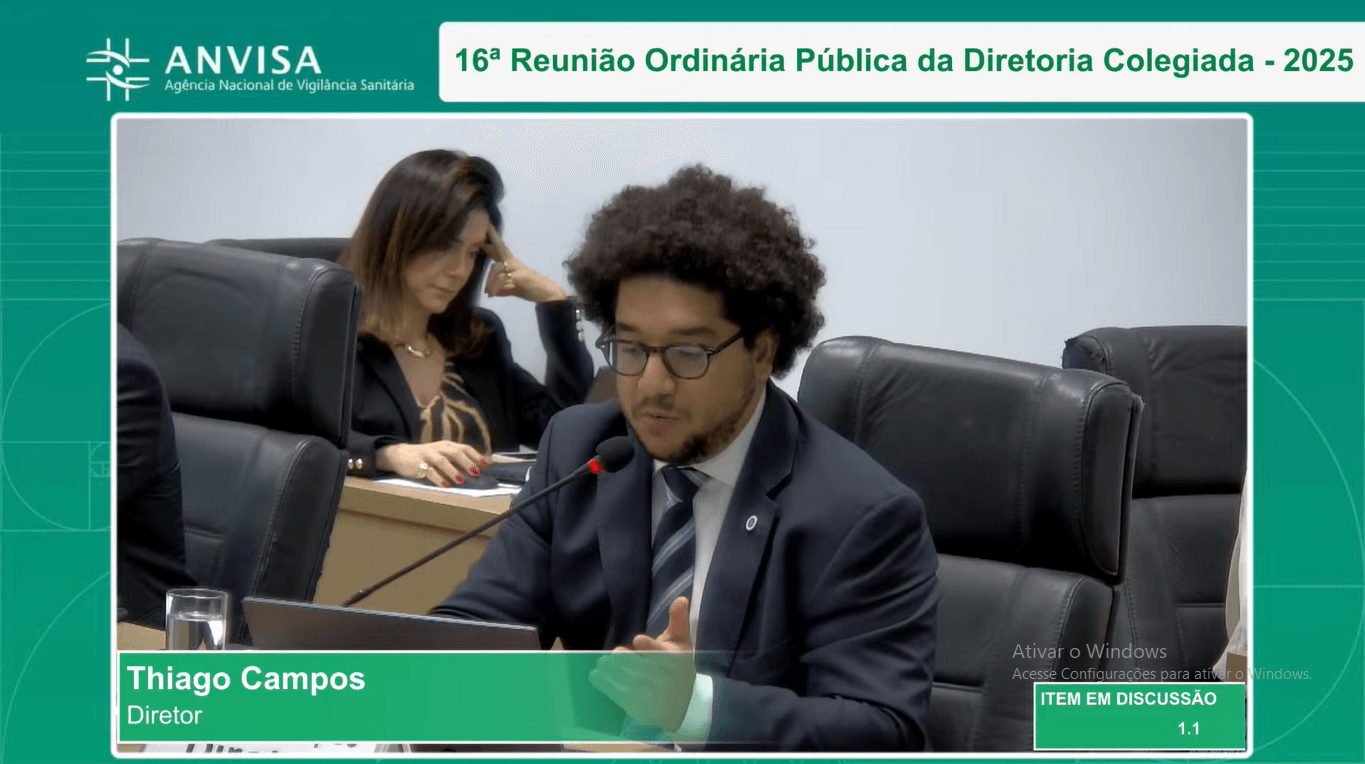“Extended deadline creates the possibility of presenting a more consistent proposal,” says Anvisa director about regulation of cultivation
Thiago Campos advocates for the extension of the regulation deadline and reinforces the importance of social listening in the process
Published on 10/08/2025

Anvisa. Image: Marcelo Camargo/Agência Brasil
The Anvisa board discussed on Wednesday (10/08) the extension of the deadline for the regulation of medicinal cannabis cultivation, a step that, if accepted, "creates conditions for the development of initiatives that prioritize society and the construction of a more consistent regulation," said director Thiago Campos.
The discussion took place during the Collegiate Board Meeting (Dicol). The agenda entered the meeting as a subject for discussion and information, under item 1.1.
According to Campos, it will be essential to carry out social listening and other forms of social participation that allow for the identification of the best conditions for the production of quality inputs and the promotion of research.
"The additional requested deadline creates the possibility of presenting a more consistent proposal, capable of incorporating the real needs of Cannabis sativa cultivation in national territory exclusively for medicinal and pharmaceutical purposes," added the director.
The need for a safe standard

The main objective, according to the director, is to create a standard that complies with the judicial determination and, at the same time, ensures patients access to safe and effective products. Anvisa seeks to comply with the determinations of the Superior Court of Justice (STJ) regarding the planting, cultivation, and industrialization of cannabis for medicinal purposes.
Due to the complexity of the subject, Campos requested new responses from the technical areas regarding previous questions, including:
- The sufficiency of the current regulations to comply with the judicial decision;
- The reasons for not including research authorization in the previous draft;
- The impacts of the decision on the judicialization of the subject;
- The deadlines necessary for regulatory adjustments;
- The impacts that setting maximum THC percentages could cause to already registered products.
Opinions from Anvisa's technical areas
The Controlled Products Management (GPCON) indicated that the actions aimed strictly to comply with the STJ decision, which is why research was not initially included. GPCON also informed that the exclusion of the variety from the "E" list of Ordinance 344/1998 is necessary, indicating a 24-month deadline for the adjustments.
On the other hand, the Specific Medicines Management (GMESP) warned that the 0.3% THC limitation could be a hindrance to research and the development of new medicines, including alternatives to Mevatyl. "The decision not to establish a THC content limit could mean a better use of Brazilian cultivation conditions," the area pointed out.
Importation and research in cannabis cultivation
The General Management of Ports and Airports (GGPAF) emphasized that the operationalization of seed imports still needs to be discussed with the Ministry of Agriculture (MAPA), the agency responsible for approval. "A 24-month period for discussion with MAPA is necessary," it added.
Prior to the decision, Director Thiago Campos held meetings considered crucial. The first one with Embrapa "reinforced the need to deepen the discussion on research topics."
The second meeting was with representatives of patient associations, who, according to Campos, play an essential role in the process. “Listening to them is recognizing their social legitimacy and their role in mediating with the State,” he said. “These contributions enhance the quality of the decision and strengthen the construction of a balanced regulatory framework, with safety and patient access.”
Support from other directors
Director Rômison Rodrigues Mota highlighted that the report presented by Campos reflects the complexity of the subject and appealed for other federal agencies — such as the Ministry of Health, MAPA, and the Ministry of Justice — to join Anvisa in delivering a proposal that fully complies with the judicial decision.
Director Daniel Pereira also emphasized the importance of institutional articulation and technical deepening in the regulatory process.
Federal Government requests extension from STJ
The debate takes place amid the Federal Government's request to the STJ to extend by 180 days the deadline to publish the rules for medicinal cannabis cultivation. The request, submitted on September 20, justifies that the extension is necessary due to the high technical complexity of the subject.
The new work plan foresees that the stages to finalize the regulation of medicinal cannabis will extend until March 2026. The STJ summoned the appellant company, DNA Soluções, to respond to the postponement request, and the company confirmed to Sechat Portal that it will respond within the deadline. After the response, Minister Regina Helena Costa will publish her decision.










